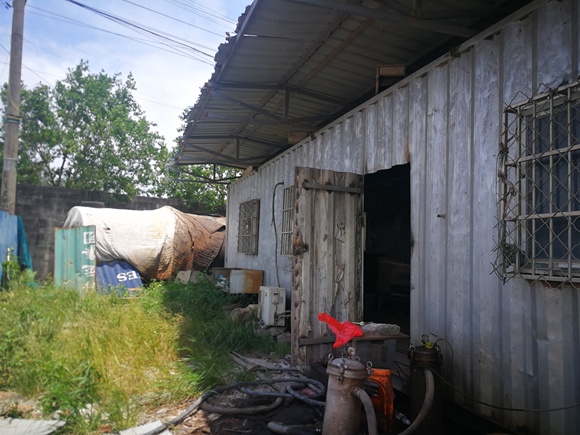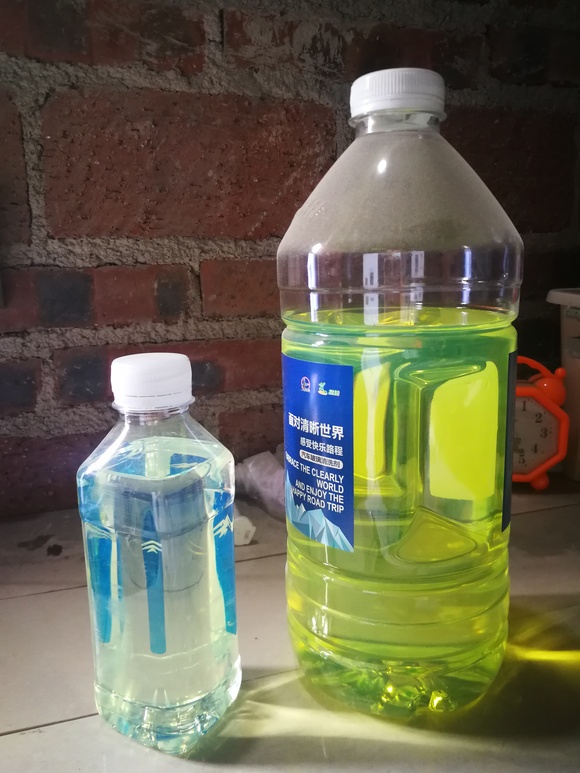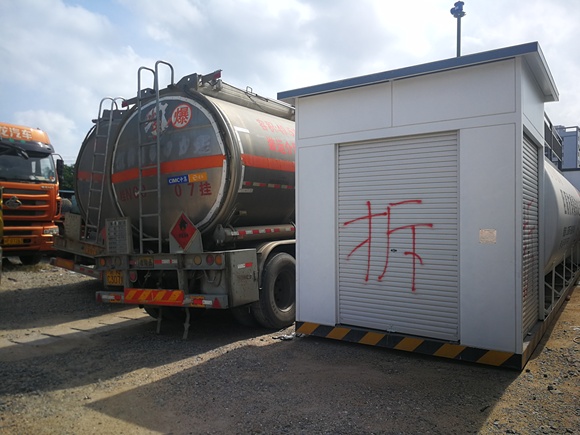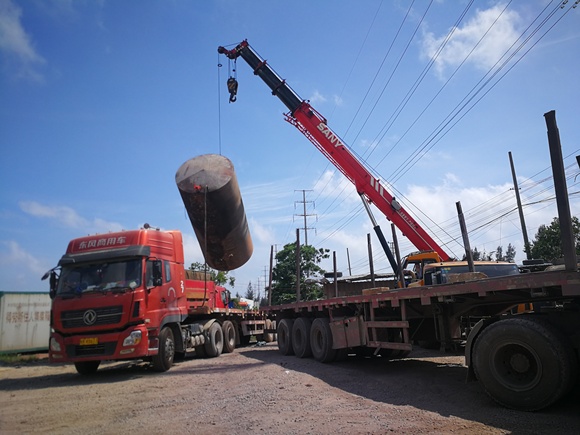China is in the throes of campaign against the illicit fuel that costs the country hundreds of billions in tax revenue. New tax regimes and better infrastructure are on the way to incentivize legal traders.

Photo from CFP
By HOU Ruining
Hidden behind a rusty iron door of a concrete blockhouse in the corner of a truck stop in Qinzhou are two huge tanks containing 12 tons of diesel and a pump: a typical illicit fuel depot. A law enforcement officer flicks through a stack of paper on the rickety wooden desk. At 6.45 yuan (US$1) per liter, the diesel seems quite cheap, but according to the officer, even the price is fake: “The real price is about 4.5 yuan per liter.”

China has a big problem with illegal fuel. From January to May this year, almost 400 tons of diesel and close to 500 tons of gasoline were seized in Qinzhou, a port in Guangxi Zhuang Autonomous Region where sales of illegal fuel are rampant. Next door in Guangdong, police have arrested over a hundred people involved in the trade of blending fuel for diesel, including staff of state-owned companies.
It is estimated that 95 million tons of fuel were produced illegally in China last year, nearly a third of total consumption. Most are made from tax-exempt light cycle oil (LCO). LCO is bought from importers or local refineries and blended with small amounts of jet fuel and coloring. It has similar characteristics to legal diesel but is substantially more damaging to the environment. It is peddled in minivans or mobile gas pumps to truck drivers, heavy machine operators, and barge owners.
Illicit fuel sellers cost the country hundreds of billions in lost taxes every year. A well-established operation helps distributors forge invoices and transfer funds, but the main problem is the raw material, LCO, which is tariff-free within many Asian countries. China now imports 8 times the LCO it did in 2015. Guangxi and Guangdong account for over half of the amount. New taxes on imported LCO and other ingredients, effective on June 12, are expected to significantly push up the cost of illicit fuel, increasing the price of LCO to 1747 yuan per ton.

Sellers connect to buyers through social media with not-very-cryptic messages like “Truck repair at Qinzhou Port,” “Water supply at Datang Highway exit, fair prices.” A taxi driver in Qinzhou said that before the current campaign, mobile fueling stations — usually minivans hauling one or two barrels — were “very common”. They pop up on the roadside after dark, or more often, hide in plain sight in residential neighborhoods or port parking lots.
At least 70 percent of the 40,000 trucks coming in and out of Qinzhou Port each day run in part or whole on illicit fuel. “Regular gas stations simply can’t compete,” said oil analyst YIN Qiang.
MAO Changwu, a Qinzhou oil trader, said his diesel sales are down 40 percent due to competition from illicit fuel. The problem is not just eating away the fuel market in South China. In north China, the share of legal diesel has fallen from 70 percent to below 20 percent due to illicit fuel.
Given the volume of the trade, fuel consumption has been significantly underestimated, interfering with economic and environmental policies. According to official statistics, China’s diesel consumption peaked in 2015 and dropped rapidly afterward, but studies have shown that actual diesel usage had continued to grow from 2016 to 2020.
A large freight company owner said his business is finding it hard to compete with small, unlicensed operations that run on bootleg fuel. With 100 heavy-duty trucks, he can save more than 1000 yuan on a single tank using dodgy gas.

While the returns of selling contraband fuel are huge, punishments for offenders are usually light. If the transaction is smaller than 50,000 yuan – and it invariably is, at the pump at least, - no criminal act has been committed. In Qinzhou, the standard fine is less than 3000 yuan, which even a minivan-based operation can easily afford. Despite almost constant clampdowns and campaigns, the trade remains hugely profitable. It is hard for law-enforcers to have any effect at all, let alone eradicate the business completely, but the net is perhaps closing in. Since Guangdong’s authorities started working together, 338 cases have been investigated, with 860,000 tons of fuel seized.
New consumption tax may incentivize authorities to close loopholes and improve law enforcement. Currently, taxes on fuel are levied mainly at the port or refinery and go directly to the central government. Shifting the tax base closer to the pump giving the local government a bigger share should lead to better regulations and enforcement, but it will take a technological overhaul of the current tax collection infrastructure, with more than 100,000 gas stations involved. The ultimate solution must be a high-tech one and has already been rolled out in provinces including Guangdong.

Qinzhou has installed gas pumps in the obscure corners of the port haunted by minivan fuel sellers. Henan Province has also started an initiative to “take legal fuel to the last mile,” and efforts have been made to make legal fuel more accessible in under-served areas.